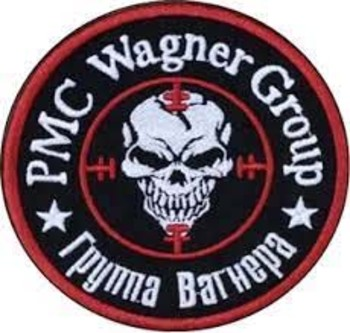
The Darfur Bar Association (DBA) has confirmed the presence of Russian ‘Wagner’* mercenaries in South Darfur, which it claims to have documented ‘since last year’. The mercenaries are specifically accused of attacks on artisanal gold miners in Um Dafug locality, close to the border with the Central African Republic (CAR).
In a statement on Friday, the DBA says that it has documented pictures of mercenaries in cafes and in the streets and valleys of Um Dafug, and has heard testimony from relatives of people in South Darfur who were allegedly killed by Wagner mercenary elements in the border areas with CAR.
In its statement, the DBA places moral responsibility on “everyone involved in granting concessions to companies and the Rapid Support Forces for gold mining in the Sengo area in exchange for a share supplied by the Central Bank of Sudan” for “allowing companies to exploit the wealth of the area’s residents without their participation.”
The DBA cites as an example the exploitation of gold in the Sengo area “under the cover of obtaining the concession and supplying the state’s share to the Central Bank”.
The RSF, commanded by Deputy Chairman of Sudan’s Sovereignty Council Gen Mohamed Hamdan ‘Hemeti’ Dagalo, has long been associated with the control of gold mining in Darfur.
The RSF has built up a vast business empire that captures not only a large part of the country’s gold industry but also has huge interests in many sectors of the Sudanese economy. The anti-corruption NGO Global Witness published a report in 2019 about the financial networks behind the RSF.
According to political analyst Magdi El Gizouli, Hemeti’s visit to Russia in March this year was “arranged by the Russian Wagner mercenaries in order to find a way out for their ally in Sudan, and to ensure his continuation in power so that they can continue to plunder the country’s resources”.
The Sudanese Company for Mineral Resources announced last week that it provided the state treasury with more than 45 million dollars in ten days, an unprecedented amount. The company said in a press statement that it was able to procure roughly 100,200 kilograms of gold from the traditional stock exchange in the Gold Building in Khartoum.
Gold mining in Sudan
The current amount of gold prepared for export is unprecedentedly high as the company procured more gold in ten days than is usually exported by the country in one year.
At the moment, Sudan contributes roughly 90 tonnes of gold to the global market per year, making it the 10th largest gold producer in the world. Most of this gold is mined in the Hassai Gold Mine in Red Sea state, where iron ore and other base metals are also mined.
Gold can also be found in North and South Kordofan, Darfur, Northern Sudan, River Nile state, and other places along the Nile River and Blue Nile River. Other mineral reserves in the country include chromite, gypsum, phosphates, zinc, lead, nickel, aluminium, and cobalt.
Stiffer control
Gold export is important for Sudan’s economy. In an interview with Radio Dabanga’s Sudan Today programme, Professor of Economics at El Nilein University in Khartoum Dr Hasan Bashir explained that export volumes could have been 10 times the size of current exports and highlighted the continued smuggling of large quantities of gold from the country.
Sudan is the second largest gold producer in Africa. The production however is often driven by unregulated, artisanal (individual subsistence) mining, and routine gold smuggling across international borders is a constant problem. Estimates are that between 50 per cent and 80 per cent of Sudan’s gold is smuggled out of the country. It is also known that proceeds have been used to finance the internal conflict.
To combat this problem, the Central Bank of Sudan announced stiffer control measures in March this year.
